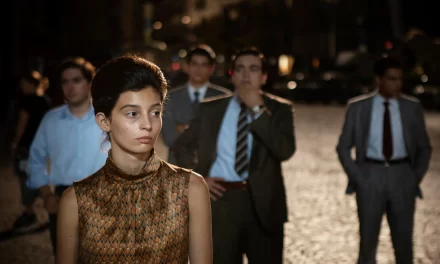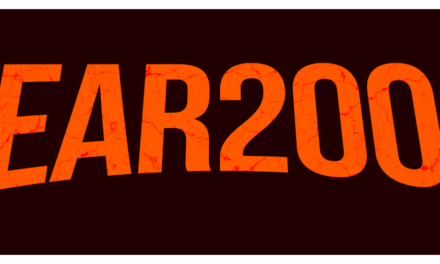In the world of teen drama (or YA drama, as some prefer), there are a number of ways to represent adolescence and its attendant horrors, and we’ve seen a great deal of fantasy-based approaches; beginning with Buffy, some establish that high school is actual hell. But few series come close to Chilling Adventures of Sabrina’s devotion to that idea. The Netflix series (2018-20), based on the Archie Comics spin-off and featuring a much darker version of Sabrina Spellman, may be difficult for audiences to reconcile with ABC’s Sabrina the Teenage Witch, the previous adaptation. While one is a teen sitcom in which Sabrina’s powers get her into wacky situations, and she is supported by a talking Salem the cat, the other might feel closer to The Craft. However different this version of Greendale is from what we may be used to, it certainly offers much to explore.
We invite proposals for a forthcoming collection of essays on Chilling Adventures of Sabrina and welcome those that engage with industry perspectives, textual approaches, audience studies, and issues of critical reception.
We anticipate a broad audience for this collection, which includes scholars as well as students of the humanities at both graduate and undergraduate levels. As such, submissions from contributors at various levels and from diverse fields are encouraged. Suggested themes include but are not limited to:
- Genre (teen/YA drama, horror, etc.)
- Gender (masculinities, femininities, etc. as represented in the series)
- Girlhood studies
- Race and ethnicity (both in the series and from a production perspective)
- Queer readings and approaches
- Dis/ability
- Religion (Christianity, Wicca, etc., both in reality and in the world of CAoS)
- Historical, cultural, televisual, and other contextual frameworks
- Intertextuality
- Industry/production
- Adaptation
- Love and romance
- Family constructions
- Autonomy and consent
- Class and economics
- Freedom and power
Submission Details:
Proposals should be between 300 and 500 words (along with 3-5 key sources) and should clearly describe the author’s thesis and proposed outline of the essay. Completed essays (6000-7500 words, including references) are also welcome. As a separate document, authors should provide a short CV with contact information and relevant publications and presentations.
Please note: submitted proposals/essays should not have been previously published nor currently be under consideration for publication elsewhere. An academic press is already interested in this collection.
Submission Deadlines:
Abstract Due: October 31, 2021
Notification of Acceptance: November 15, 2021
Full Essay Due: January 31, 2021
Questions and submissions to Dr. Cori Mathis, cemathis@lipscomb.edu





